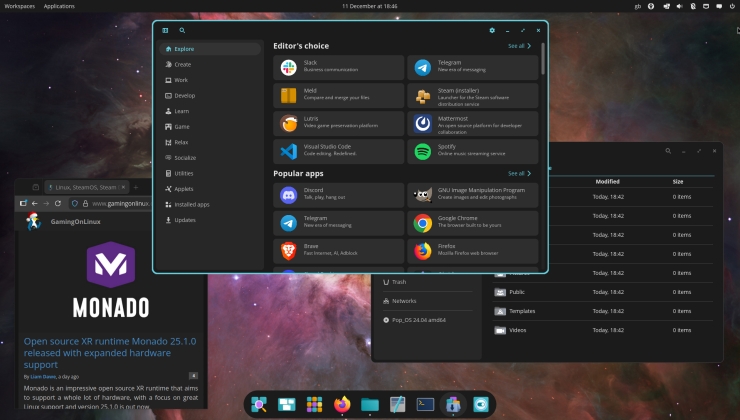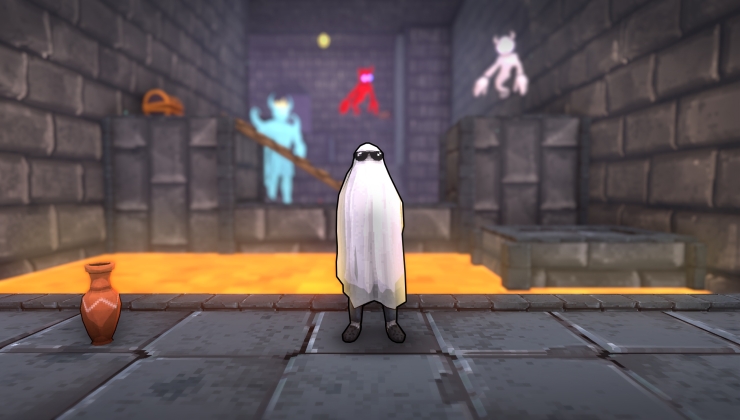In another case of scammers trying to buy keys with often stolen credit cards to sell on websites like G2A, the developers of 'Factorio' have written about their experience with it (and other stuff too).
To recap, here's how it all works:
- A purchase is made on a developers website using a stolen credit card, hacked paypal etc.
- The purchaser sells the key on the grey market within a couple of days.
- Some weeks later the owner of the credit card notices, and issues a chargeback to the developer.
This happens to a lot of developers and more and more are speaking out about it. Those effectively stolen keys end up on grey-market stores like G2A.
Samsai and I have both written about this before, but here's a point we never considered: When the chargebacks happen, the developers end up getting an extra charge. As the Factorio developers have explained:
That's a lot of time and money wasted because of, for lack of a better word right now, assholes.
This is something I've seen people say constantly about it too "just revoke the keys!", they speak about that as well:
The developers did find a solution, as they have ended up going with the Humble Store widget as it has built-in fraud prevention.
This is why I only ever buy from itch.io, GOG, Steam or Humble Bundle/Store.
By doing so I ensure the developer and the store service get correctly paid. There's probably a few other legitimate stores out there, but I don't bother with any of them. I don't need to, as all of those sites constantly do massive sales I have no need to go elsewhere. Just the other day I picked up another copy of Mad Max for only about £5 from a Humble Store sale!
Just something again to keep in mind before you go buying those $1 keys from random websites.
If you haven't ever played Factorio, I can highly recommend it. I wrote some previous thoughts up on it here.
Thanks for the link fedso!
To recap, here's how it all works:
- A purchase is made on a developers website using a stolen credit card, hacked paypal etc.
- The purchaser sells the key on the grey market within a couple of days.
- Some weeks later the owner of the credit card notices, and issues a chargeback to the developer.
This happens to a lot of developers and more and more are speaking out about it. Those effectively stolen keys end up on grey-market stores like G2A.
Samsai and I have both written about this before, but here's a point we never considered: When the chargebacks happen, the developers end up getting an extra charge. As the Factorio developers have explained:
QuoteOn our side, the cost is very large, each chargeback costs roughly $20 in fines, effectively a negative sale, and we were seeing upwards of 10% chargebacks on our website transactions. Also each chargeback notice had to be handled on a case-by-case basis, at one point I was spending 12 or more hours a week dealing with individual purchases.
That's a lot of time and money wasted because of, for lack of a better word right now, assholes.
This is something I've seen people say constantly about it too "just revoke the keys!", they speak about that as well:
QuoteA common saying I hear is that this isn't a problem, because 'The devs just revoke the keys', well that simply isn't true, we don't get notice of a fraudulent payment right away, it can take upwards of 8 weeks for the chargeback to be issued, at which time the key is obviously going to be already sold for profit and forgotten. We still revoke these keys, often to the dismay of the purchaser.
The developers did find a solution, as they have ended up going with the Humble Store widget as it has built-in fraud prevention.
This is why I only ever buy from itch.io, GOG, Steam or Humble Bundle/Store.
By doing so I ensure the developer and the store service get correctly paid. There's probably a few other legitimate stores out there, but I don't bother with any of them. I don't need to, as all of those sites constantly do massive sales I have no need to go elsewhere. Just the other day I picked up another copy of Mad Max for only about £5 from a Humble Store sale!
Just something again to keep in mind before you go buying those $1 keys from random websites.
If you haven't ever played Factorio, I can highly recommend it. I wrote some previous thoughts up on it here.
Thanks for the link fedso!
Some you may have missed, popular articles from the last month:
All posts need to follow our rules. Please hit the Report Flag icon on any post that breaks the rules or contains illegal / harmful content. Readers can also email us for any issues or concerns.
@cprn But that's not the whole truth, is it? The real choice is: have a fraud protection on your side at the expense of turtle-slow payment processing and every-too-often declining of legitimate payments (=constant customer frustration) or have real-time payment processing and be sure that all legitimate payments go through at the expense of occasional chargebacks (=happy customers at an extra cost). *That*s why your clients choose to ignore your fraud protection and instead put their own in place (or just go full monty until they're hit hard and realise it's not worth it).
That said, I don't think paypal even offers such a choice, and at the same time their handling of fraud payments is absolute shit. They always put the blame and the cost on the receiver even though it was their security that failed in the first place. I mean come on, is it the retailer that should guess that a paypal account has been hacked? Shouldn't paypal be the ones to detect the breach and block the payment? It makes some sense with physical goods (for example when the payment is from Italy but the shipping address is in Nigeria) but is absolutely not aligned with the digital goods market. The Internet is full of stories of companies hit had by paypal's absurd policies and blatant ignorance.
That said, I don't think paypal even offers such a choice, and at the same time their handling of fraud payments is absolute shit. They always put the blame and the cost on the receiver even though it was their security that failed in the first place. I mean come on, is it the retailer that should guess that a paypal account has been hacked? Shouldn't paypal be the ones to detect the breach and block the payment? It makes some sense with physical goods (for example when the payment is from Italy but the shipping address is in Nigeria) but is absolutely not aligned with the digital goods market. The Internet is full of stories of companies hit had by paypal's absurd policies and blatant ignorance.
0 Likes
Quoting: EikeBut isn't it the case that G2A doesn't have interest in hard fraud prevention?I'm not talking about G2A implementing fraud prevention. That's not where the fraud happens. Developers have to - that's the reality of CC processing.
Because they're not the ones having to pay when fraud happens?
Quoting: pbThe real choice is: have a fraud protection on your side at the expense of turtle-slow payment processing and every-too-often declining of legitimate payments (=constant customer frustration) or have real-time payment processing and be sure that all legitimate payments go through at the expense of occasional chargebacks (happy customers at an extra cost). *That*s why your clients choose to ignore your fraud protection and instead put their own in place (or just go full monty until they're hit hard and realise it's not worth it).The problem is they don't implement anything, not that they ignore part of our service. And yeah, it takes time to assess the risks involved in every payment but not nearly as much as you'd think. I can't say anything (literally) about the inner workings of antifraud mechanisms but I can say we don't like frustrated customers either.
Quoting: pbThat said, I don't think paypal even offers such a choice, and at the same time their handling of fraud payments is absolute shit. They always put the blame and the cost on the receiver even though it was their security that failed in the first place. I mean come on, is it the retailer that should guess that a paypal account has been hacked? Shouldn't paypal be the ones to detect the breach and block the payment? It makes some sense with physical goods (for example when the payment is from Italy but the shipping address is in Nigeria) but is absolutely not aligned with the digital goods market. The Internet is full of stories of companies hit had by paypal's absurd policies and blatant ignorance.I personally never considered PayPal a good service. But it's way deeper than that and not really a place for what I'd like to say about payment instruments in general, including credit cards. I believe, though, better times are coming. Where there's no place for either.
Last edited by cprn on 21 Jan 2017 at 5:33 pm UTC
0 Likes






 How to setup OpenMW for modern Morrowind on Linux / SteamOS and Steam Deck
How to setup OpenMW for modern Morrowind on Linux / SteamOS and Steam Deck How to install Hollow Knight: Silksong mods on Linux, SteamOS and Steam Deck
How to install Hollow Knight: Silksong mods on Linux, SteamOS and Steam Deck